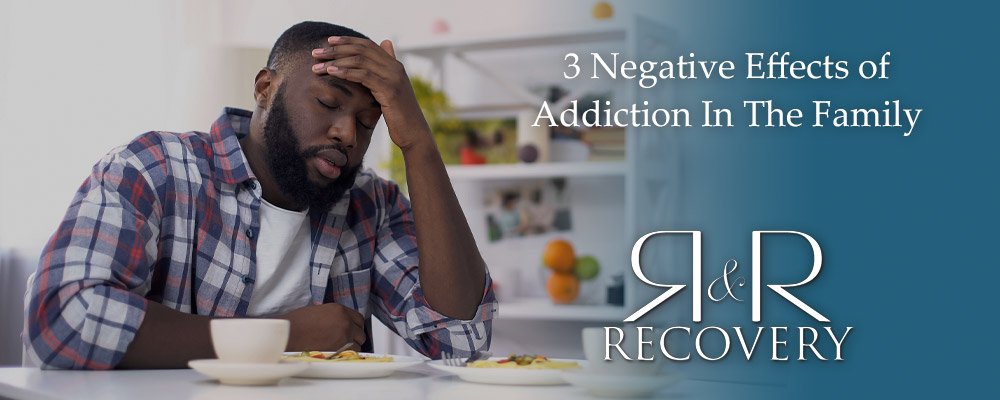
3 Negative Effects Of Addiction In The Family
Addiction doesn’t just harm the patient. It also harms their family and the people around them: from workmates to friends. It’s a complication with ripple effects to the rest of society, but if there’s a hierarchy of which relationship the patient should mend, the family should come first.
What Is The Family Systems Theory?
The family systems theory is a theory introduced by Doctor Murray Bowen. The theory states that individuals are not meant to exist in isolation from one another. Rather, we are designed to be innately part of our families and that each family functions as one emotional unit. This means that a dysfunctional family will most likely yield dysfunctional members. Conversely, an emotionally healthy family will promote the healing and wellbeing of its members.
The theory further states that every member of the unit has their respective roles for the betterment of everyone. Each member also has the responsibility to respect the rules of the unit and are expected to treat one another with love and respect.
When you apply the theory to a recovering patient’s situation, it simply means that the actions of the family can either make or break their recovery. This also goes both ways – the patient’s actions likewise impact the rest of the family. The onset of addiction has countless negative effects on the unit.
Negative Effects Of Addiction On The Family
Loss Of Trust
The family members may be less likely to trust the recovering patient after they have been discharged from rehab. Everything they do may be viewed with a veil of scrutiny. Their every move may be assumed to be a way to get their hands on alcohol or drugs.
While the loss of trust is completely understandable, the family members must understand that this may contribute to a widening of the rift between them and their recovering loved one. The patient will feel like their best efforts to stay clean won’t be appreciated since their family won’t trust them anyway.
The best solution is to arrive at a compromise. Give the recovering loved one their freedom to access their phone or to go out. However, they must not make contact with their old supplier or they should comply with a curfew. The family should also make more of an effort to trust the patient.
Increased Stress Levels
Everyone in the family will undoubtedly feel stressed. The recovering addict might be unable to fulfill their obligations at school or work which means that the rest of the family members have to step in. Even the partner will feel stressed as they are usually the ones that fill in the shoes and fulfill all the responsibilities.
These extra responsibilities include managing the house finances, paying the bills, doing household chores, caring for the kids, and more. As such, the house might become a stress-filled environment that will affect everyone in it. This may lead to higher cholesterol levels, anxiety, higher blood pressure, cardiovascular complications, and more.
The first step to remedy this is to understand that stress will always be there. It is about knowing the correct way to handle the stress so that it doesn’t bottle up and explode. One good way is to be vocal about the stress levels and to ask the patient to help out in any way they can. At the same time, this shouldn’t be done in a way that pressures them to get up and assume their responsibilities when they know in themselves that they aren’t ready yet.
Financial Issues
It is no secret that treating addiction can make a dent in the family’s savings account. Inpatient and outpatient rehab is expensive but necessary. The family members have the responsibility to avoid holding the costs over the patient’s head as this will make them question their self-worth or develop feelings of resentment.
It is important for everyone to realize that maintaining the family-patient relationship is so much better than letting money ruin everything. There are also ways to make the expenses more manageable. Some insurance companies cover it so that the fees will be significantly reduced. Others offer installment plans that take months to pay so that it will be less stressful on the pocket.
The patient can also work after they are done with inpatient rehab. While they are staying in a safe house or at home, they can find the time to seek employment opportunities. As with anything else, it’s important to not pressure them into this decision too quickly and allow them to focus on what is truly important first, staying sober.
How Can This Be Remedied?
The familial relationship is often prioritized in the healing process which is why there are countless options available. Rehab centers often have family therapy in which the family can attend as a unit. In each session, the members are encouraged to voice out their emotions and feelings so as to foster a more open relationship with one another. This also aims to improve everyone’s communication skills so that everyone will be more comfortable with expressing their feelings and emotional needs.




